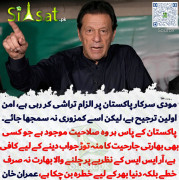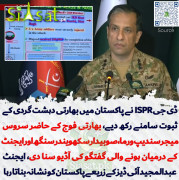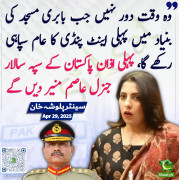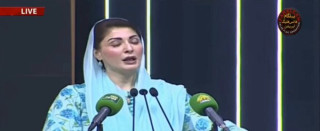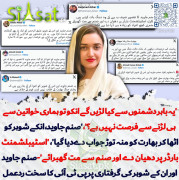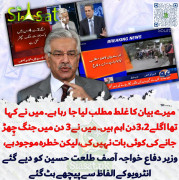Look buddies, first of all, clear your misconception that anyone is taking Sunnah or Ahadith over Quran --- 1.
Secondly, let me try to elaborate something in the light of my own experience and opinion. It may link to you as well.
In my school days, I used to hate mathematics, just because I could not see the relevance of (A+B) whole squared in my practical observable life. But when I got into my professional life, I started to see its relevance in my work. Since then, I have acknowledged its relevance and now my skills have also improved a lot.
Likewise, I also used to have more or less the same opinion about Ahadith and Fiqah, as you guys currently pose. But when in my life, I was confronted with many legal matters, I found out the relevance of Ahadith and Sunnah in the light of legislation.
Although, let me reiterate that it does not mean taking Ahadith and Sunnah + Fiqah over Quran.
Quran gives you a guiding principles and it is complete in its form. However, further operational and implementing elaborations are available in Ahadith and Sunnah and then Fiqah. But there is a methodology of cascading it:
1- First and foremost is Quran. If it is not in Quran or goes against the Quranic teaching, the Sunnah or the Ahadith is to be rejected.
2- If something is even not found in Ahadith and Sunnah, the matter can be referred to Fiqah, but again, the Fiqah shall not stand contradictory to the tenets of Quran and Sunnah.
In a traffic rule book, you will only find that if you need to turn right, then you have to turn on your signal and then turn right.
In the manual of driving, you will find further details that if you need to turn right, you first need to look back if there is no other vehicle there, then you need to turn your signal on before hand so that there is enough time for you to move to the right corner without obstructing the flow of the traffic and then you should stop at the turning point and see if there is no one coming from the other side who might hit you if you take the right turn, if there is one, then let him pass first and then take a turn, while keeping the signal on and being stationery at the right turn.
Now look at the first condition of the rule book. It states the principle. This is what is in Quran.
Look at the second elaboration of the driving manual. It is more detailed and elaborative of the main text of the rule book. This is Sunnah. Now Sunnah cannot go against Quran as the manual cannot go against the rules book.
It is also a famous hadith of Prophet Muhammad (SAW) that "Compare my hadith with Quran, if it is not in the Quran, it is not my Hadith". Many people take this hadith as a notion that only Quran has to be followed and that all the Hadith are liable to be rejected in this accord. However, the implication is rather retrospective, the hadith never says to reject a hadith which is in consonance with the principles laid down in Quran. It propounds to accept that hadith.
Well as I stated my own experiences were the totally opposite. I was a hard core hadithist, you don't go on to read a nine volume collection cover to cover as well as a lot of other collections, just like that. Only later on in life I discovered. Hadith is totally unreliable and uncredible and adds a lot of extra fluff and unnecessary baggage to a beautiful and simple deen.
Making it unduly stressful and complicated. Just watch any moulvi Q&A show and the type of ridiculous questions coming in makes you wonder how do people even think of such non-sense. And then the even more flabbergasting answers.
I admire to attempt like many in the past at great verbal gymnastics and far fetched analogies trying to justify hadith as a source of secondary deen and an explanation of the Quran. But alas a wasted attempt, because the Quran itself says it does not need another source to explain it. It is easy, clear and detailed and actually warns about using anything outside the Quran.
With an open mind and without and preconceived notions look into the history of hadith, how and when it was collected, how reliable is the hadith we have today and most importantly read the hadith. And you will realize there is no way you can base your religion on something that is so ridiculous and outrageous nor can they be authentic, that talks about Prophet's testicles, monkeys doing zina, nauzubillah the Prophet lusting after his own companions wives, the Prophet wanting to commit suicide so on and so forth.
If the Quran was to contain even one ayah that was suspected to be fabricated we would dismiss the entire Quran as how can something that is suppose to be from the creator have man made fabrications in it. Then the entire book loses credibility.
But the hadith has 1000s of fabricated lies in it and these are classed as fabrications by the great muhaditeen themselves. Then how can we take anything from it.
And as I mentioned earlier, the Quran itself says its a complete book, in a clear and easy to understand language and you do not need any law outside it and not to follow any other hadith and sayings other than that of Allah in the Quran. Even the hadith says the Prophet forbade hadith, the khulafa rasidun and the sahaba did not compile or allow any books of hadith.
By forcefully injected hadith which is unreliable and downright fabricated you are Going against Allah, his message and his messenger.
Hadith is great, I encourage everyone to read it, a great resource but only if you treat it for what it is, hadith is nothing but early pre and post Islamic history and a biographical account of the Prophet's life and seen and witnessed by 1000s of people in small anecdotes. If you treat and read the hadith as such, you will have no problems and issues. But if you use hadith as a source of deen and jurisprudence then you will be in great confusion and great problems and issues will arise.
Also ask you self a simple hypothetical question. God forbid if tomorrow the Quran didn't exist and only the hadith did. How much difference would it way make to the way Islam is practiced and followed today. Almost no change at all.
But vice versa if the hadith disappeared tomorrow and huge chunk of how Islam is practiced and followed will change.
So ask yourself are we following the deen of the Quran or rather the deen of hadith. If you are a thinking man, not blindly following what you've been told to follow, all of this should have set off some alarm bells in your head by now.
I know to even think that Islam can exist without hadith sounds blasphemous and just even thinking about it is making me a sinner. I went through the same when I first started to realize that what I had been told, taught, learned and read on my own for all my life could be wrong. I was a bad gut wrenching feeling to have. How could so many people could be wrong for such a long time.
So I started to do more research on hadith, hoping to discover that all of this was wrong and hadith was right but I just didn't have the knowledge to satisfy myself. But the more I looked into the more I realized that hadith was standing on very wobbly foundations, in fact it was like a house of cards that is being forcefully being kept standing by hiding and obscuring some truths about it.
Still I did not want to believe it, although I no longer had any proof to keep believing in them. But then I remember the verse from the Quran.
And when it is said to them, "Follow what Allah has revealed," they say, "Rather, we will follow that which we found our fathers doing." Even though their fathers understood nothing, nor were they guided? Surah Baqarah Verse 170
But how can so many people be wrong about this?
If you follow the majority of people on the earth, they will lead you astray from the path of God,
for they follow only conjecture and surmise. Surah Anam Verse 116
And if you have made it till here, thank you for reading it all.



